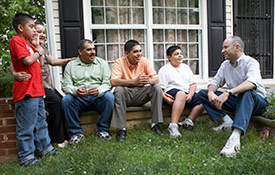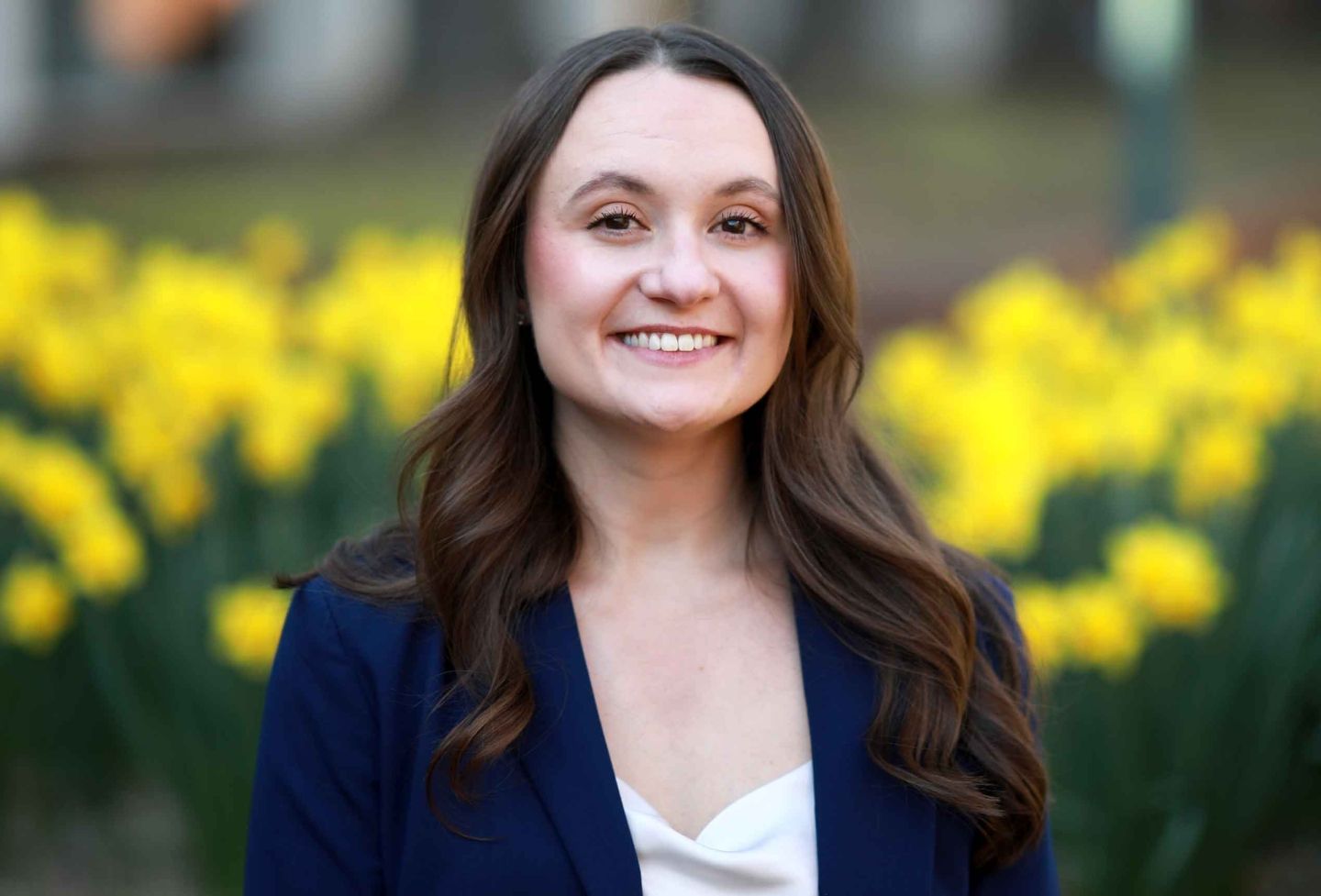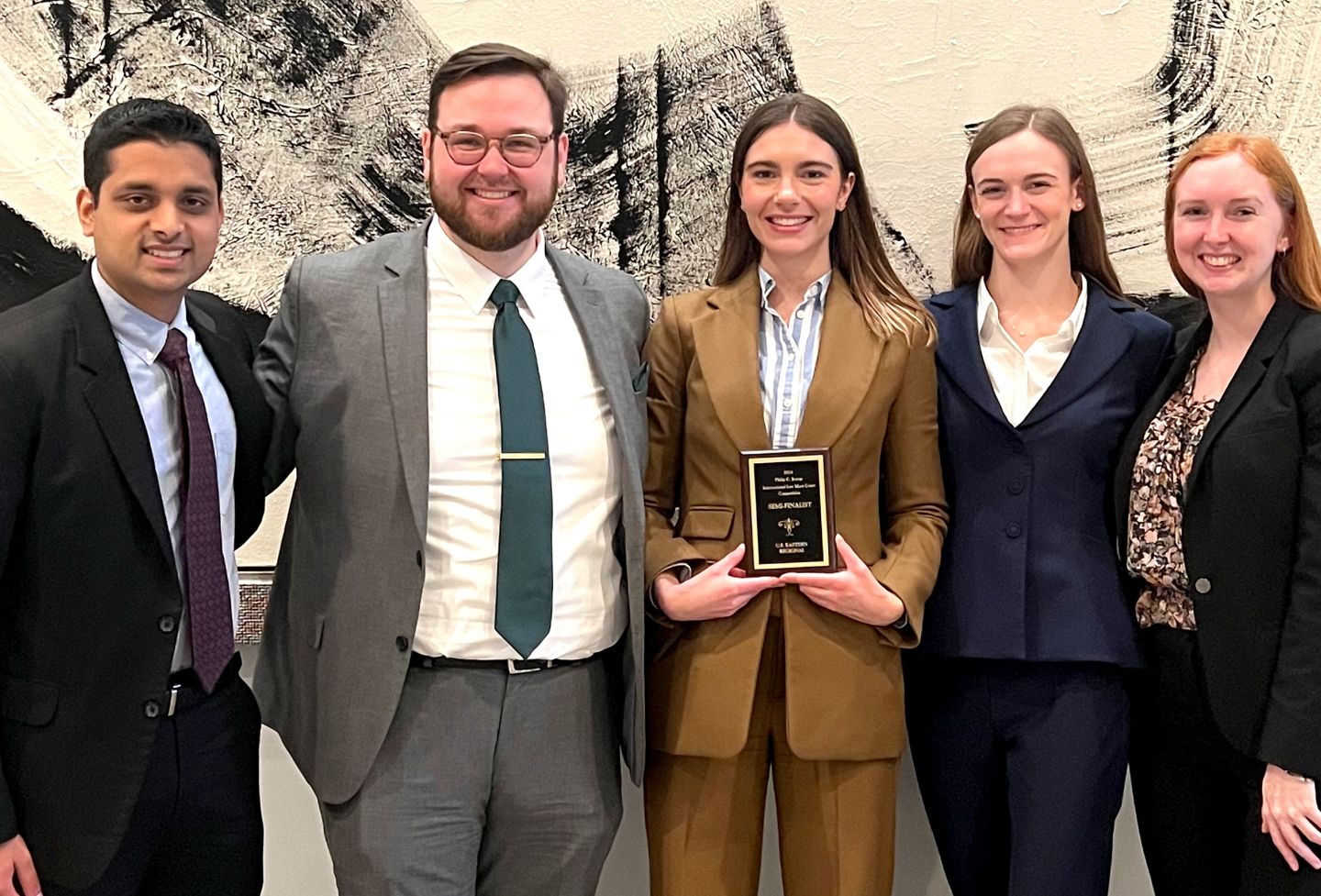Immigration Law Clinic Credited with Family's Reunification
This story originally appeared in the May 23, 2009, edition of the Charlottesville Daily Progress.

Nearly four years after a family from El Salvador came to the University of Virginia Law School's Immigration Law Clinic for help, the eldest son has rejoined his family legally in the United States.
Under the guidance of clinic leader and law professor Doug Ford, students involved in the clinic have spent hundreds of hours researching ways to bring Ernesto Rivas home to his father.
Between four and six law students at a time are involved in the clinic, which started as a pro bono program and became a credit-earning clinic in 2005 in conjunction with the Legal Aid Justice Center. Ford said each student takes on a couple of cases for the low-income immigrant population.
"The purpose is two-fold: to teach and guide students through the finer points of the law and skills they need to actually do the work of effectively representing clients and provide a community service, giving representation to low-income immigrants with valid claims to remain in the United States who would otherwise go unrepresented," Ford said.
Gabriel Rivas, Ernesto's father, said he came to America in 1990 to escape a war in his home country with the help of a green card. The family, which includes his wife and two American-born sons, has lived in Charlottesville for 15 years.
Ernesto Rivas is Gabriel's first son, who he had when he was younger. Ernesto Rivas was raised by his grandparents in El Salvador, where Gabriel Rivas said his son faced gang threats.
USAID, an independent federal agency, wrote in a 2006 report that gangs infiltrated El Salvador as the country's residents were deported or returned willingly to the post-war country in the 1990s. The report said more than 700,000 people resettled in the Washington, D.C., and Los Angeles areas, where some had contact with gangs. In 2006, El Salvador's National Civilian Police estimated that 10,500 people in the country were gang members.
In December 2004, Gabriel Rivas got a call about his son. U.S. Border Patrol had picked him up along the Mexico/Texas border on his way to Charlottesville. Ford said the Rivas family contacted the clinic in 2005.
The clinic has about 40 cases at any one time, but many are waiting on court decisions. Ford said it is typical for students to not see the end of a case after the semester is over.
Phil Storey, a law student who graduated this month, was able to see much of the case unfold. Storey met the Rivas family through his wife, and he was inspired to go to law school in part because of the work that the Legal Aid Justice Center was doing for his friends.
"I was looking for a way to get a little more engaged with helping people who had a real immediate need, " Storey said. "— To be able to do that and have it come to a conclusion right as I'm finishing up law school is more than I could have hoped for."
Storey, who worked on the case for two years, said Ernesto Rivas was permitted to live with his father while immigration proceedings took place. In the meantime, Ernesto Rivas attended high school and the Charlottesville Albemarle Technical Education Center. As the years passed, Ford and various members of the clinic worked to find a way to keep the father and son safely in the United Sates.
The clinic had made a case for gang asylum for another immigrant, but Ford said Ernesto Rivas' case didn't meet the rigorous standards. Ford then tried to argue that the young man's successful entry into the United States would have allowed him to become a permanent resident, but his attempt at an illegal entry typically invalidates that argument. It was further complicated as Ernesto Rivas grew from a minor into an adult, Ford said.
Although it took years to resolve the case, the Rivas family held on.
"Mr. Doug Ford [was] working hard on this case, " Gabriel Rivas said. "He helped a lot for [my] son — [he spent] a lot of time for my son."
In the interim, both Gabriel Rivas and his wife became U.S. citizens. Because his father had been naturalized, Ford said Ernesto Rivas could take a one-year voluntary departure from the country and reapply for an immigrant visa.
Ernesto Rivas, now 21, returned to live with his family on April 9 as a lawful permanent resident.
"I'm very happy, " Gabriel Rivas said. "My son is very happy."
Storey will be working with the Immigrant Advocacy Program at the Legal Aid Justice Center through a fellowship. He said the clinic was a valuable experience for him.
"It confirmed what I was hoping you would get to do as a lawyer, " Storey said. "It's just a very human experience that I really appreciated. Doug is really good at making sure that happened."
Founded in 1819, the University of Virginia School of Law is the second-oldest continuously operating law school in the nation. Consistently ranked among the top law schools, Virginia is a world-renowned training ground for distinguished lawyers and public servants, instilling in them a commitment to leadership, integrity and community service.


